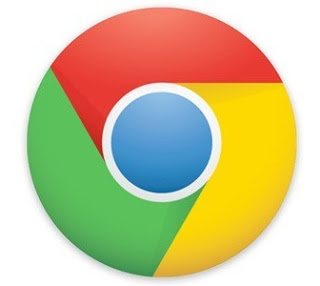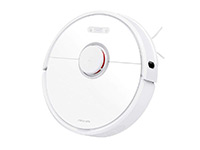Top Stocks
1. LinkedIn or Monster: Which should you buy?

Turnabout is fair play. Just as Monster Worldwide (MWW) took the job recruitment industry by storm a decade ago, catching recruitment firms and newspaper advertisers off guard, LinkedIn (LNKD) eventually turned Monster into an also-ran.
?Back in 2008, LinkedIn had just $79 million in revenue while Monster had $1.3 billion. Fast-forward to 2013, and Monster's revenues slumped to just $800 million, while LinkedIn's sales base surpassed $1.5 billion. And look for more of the same in 2014 and 2015, by which time LinkedIn's sales are expected to approach $3 billion.
Monster's projected 2015 sales: stuck at around $800 million.
2. This market chart is absolutely terrifying

There are eerie parallels between the stock market's recent behavior and how it behaved right before the 1929 crash.
That, at least, is the conclusion reached by a frightening chart that has been making the rounds on Wall Street. The chart superimposes the market's recent performance on top of a plot of its gyrations in 1928 and 1929.
The picture isn't pretty. And it's not as easy as you might think to wriggle out from underneath the bearish significance of this chart.
I should know, because I quoted a number of this chart's skeptics in a column I wrote in early December. Yet the market over the last two months has continued to more or less closely follow the 1928-29 pattern outlined in that two-months-ago chart.
3. Why the bulls should fear the latest rally

Monday should have been Friday. Friday shouldn't have occurred.
Isn't that how Monday's session seemed to play out? Everything opened up in a nice continuation of the "something for everybody" rally that we had Friday. Yelp (YELP) soared on Yahoo (YHOO). Boeing (BA) rallies on plane orders. The oils caught a bid, with folks betting on higher prices now that crude is north of $100 per barrel. Retailers muddled higher. Only General Motors (GM) and Boardwalk Pipeline (BWP) stood out as negatives -- and even then only the latter had any real news attached to it.The Street on MSN Money
But by the end of the day, the only big stocks left standing were the ones that do best in a recession. That's something the Friday jobs number might have been trying to signal, but no one was listening.
4. Rackspace plummets as CEO departs

Rackspace (RAX) is once again feeling the brunt of frustrated investors, plunging more than 16 percent Tuesday after news of its CEO departure overshadowed quarterly results that met expectations.
The company also disappointed with a lighter-than-expecte?d revenue forecast for 2014, a year of continued transition as Rackspace expands from its traditional Web hosting business into cloud software development.
By all accounts, Rackspace has been showing improvement. The company's total server count increased to 103,886 -- up from 101,967 servers the previous quarter and 98,884 servers in the second quarter.
Evercore Partners analyst Jonathan Schildkraut told Benzinga Monday that he thought the company had made some "decent progress" in the quarter.
5. Do Olympic medals mean stronger economy?

While the world watches which countries take home medals from the current Winter Games in Sochi, Russia, one group of analysts has been looking at medal counts as an indicator of a nation's economic health.
In a note to investors last week, market strategists at ConvergEx Group, a New York-based global brokerage company, found the Winter Olympics are a useful study guide regarding the relationship between athletic performance and economic progress in emerging markets worldwide. Benzinga on MSN Money
ConvergeEx analysts believe the Winter Games are an especially good indicator, when you consider the overall costs of competition. “Most sports in the Winter Olympics require a good deal of money to participate,” they said, “much more so than the Summer Olympics. Think skis, ice hockey equipment, figure skating outfits, speed skates, access to the right locations to practice, etc.”
6. Why Yahoo's shares are so cheap

NEW YORK (TheStreet) - The Yelp (YELP)-Yahoo (YHOO) partnership illustrates why Yahoo! is a terrific stock for long-term investors.
Fair-weather investors aren't big fans of Yahoo because CEO Marissa Mayer is using the company's $8 billion-plus war chest to try to increase long-term value and share appreciation. I continue to subscribe to the Yahoo bull thesis and wrote two attractive investment strategies that you can use in Real Money Pro with Yahoo.
Yelp shares gapped higher on Monday and faded lower most of the day. It was your classic buy the rumor and sell the news event.
7. How to invest like a cockroach

Main Street investors withdrew billions of dollars from the stock market last week -- just before stock prices rallied.
And according to reports, they put the money into bonds -- just before they fell.
This latest example of bad timing was a reversal of what was happening in the weeks before Christmas. Back then, Main Street investors were pulling money out of bonds and throwing it into the stock market. Naturally, this was just before stock markets tumbled and bonds rose.
So many investors act like the proverbial cat on a hot tin roof, always in motion, always trying to guess which way to jump next. Will new Federal Reserve Chairwoman Janet Yellen stop "tapering" bond purchases if the job market remains weak? Will China tank? Will Puerto Rico default? Will inflation take off?
8. 3 natural-gas stocks to heat up your portfolio

Below-zero temperatures ushered in by a parade of winter storms across the U.S. are mostly to blame for the highest natural gas prices in five years.
That has many people counting down the days to spring. Higher temperatures in the months ahead should offer some relief from winter and costly gas bills.
Weather-related increases in demand are contributing to the short-term hike in natural gas prices and critical levels of inventory.
However, even if Mother Nature spares the Northeast and Midwest from extreme winters in the future, we still lack the pipelines in the U.S. to deliver enough natural gas to consumers -- and gas-fired power plants -- that need it most.
It makes surging production a moot point as long as bottlenecks prevent it from being delivered. Much of the gas is pumped more than 1,000 miles from the Gulf Coast to the Northeast.
9. Blockbuster still a hit -- in Mexico

In the U.S., trekking to the local video rental store is seen as a throwback to a bygone era only missed by the aging or uncool.
Don't tell that to Jose Molina as he stands in line at a Blockbuster store in Mexico City's Roma district -- a neighborhood of cafes, street fairs, and century-old homes near the city center.
The student and part-time call-center worker, waiting to return "FIFA 14," a soccer game for Microsoft's (MSFT) Xbox console, routinely uses the store to try out new releases. "It usually takes me about four to five days to finish a game, so it's convenient," Molina says. "If I like it a lot, then I'll buy it." (Microsoft owns and publishes Top Stocks, an MSN Money site.)
10. Should Apple release an Android phone?

While Apple (AAPL) may sometimes hope that he would keep quiet at times, co-founder Steve Wozniak often has some interesting words regarding his former employer.
This time is no different and it might be one of his most, let's say, interesting comments yet.
Speaking at the Apps World North America conference in San Francisco, Wozniak said this:
"There's nothing that would keep Apple out of the Android market as a secondary phone market. We could compete very well . . . We could play in two arenas at the same time."






































